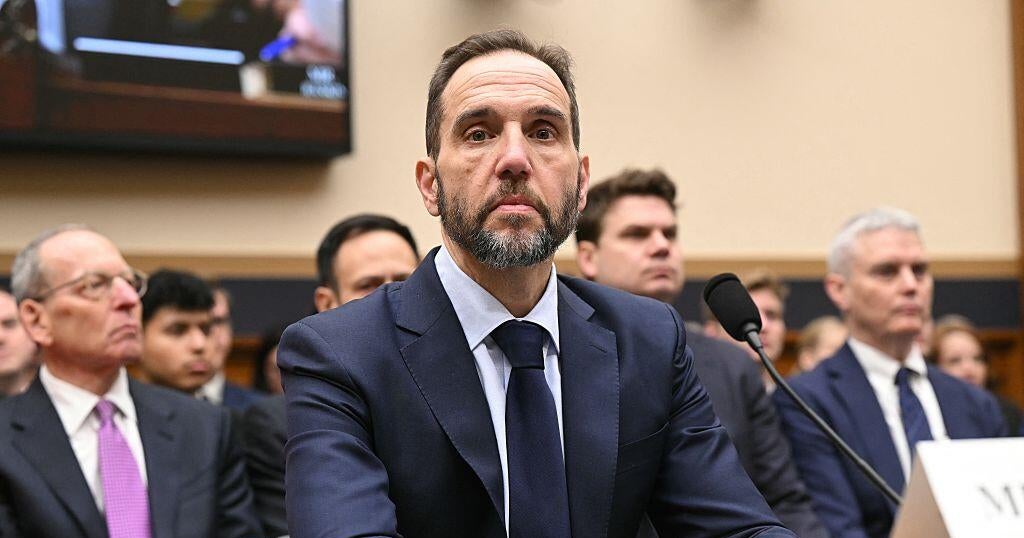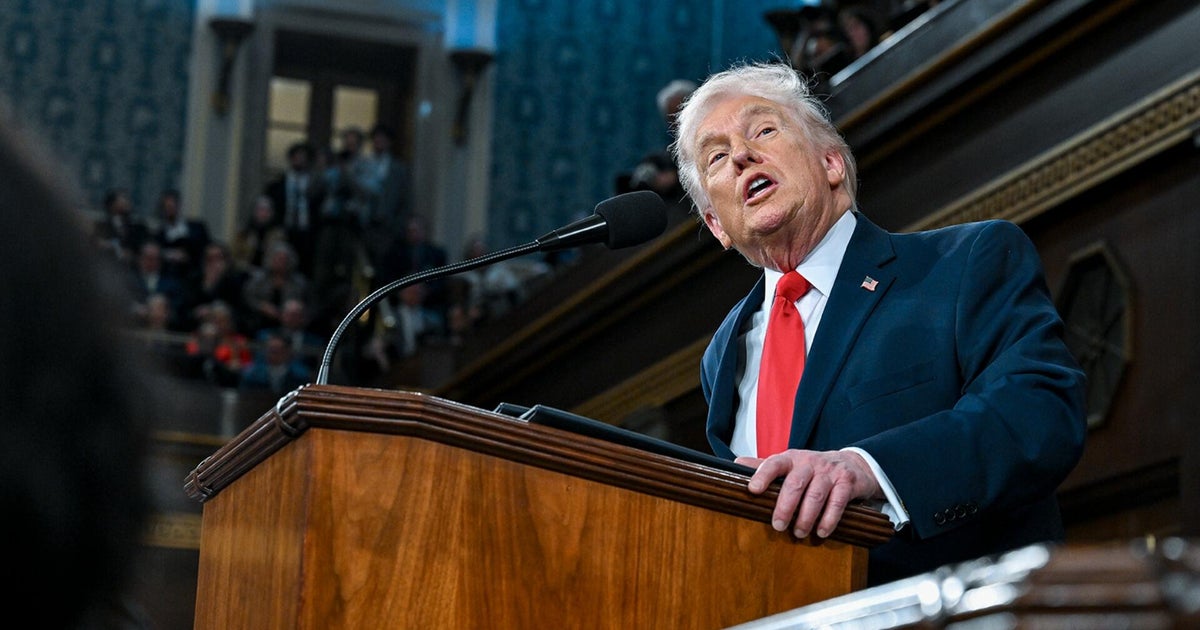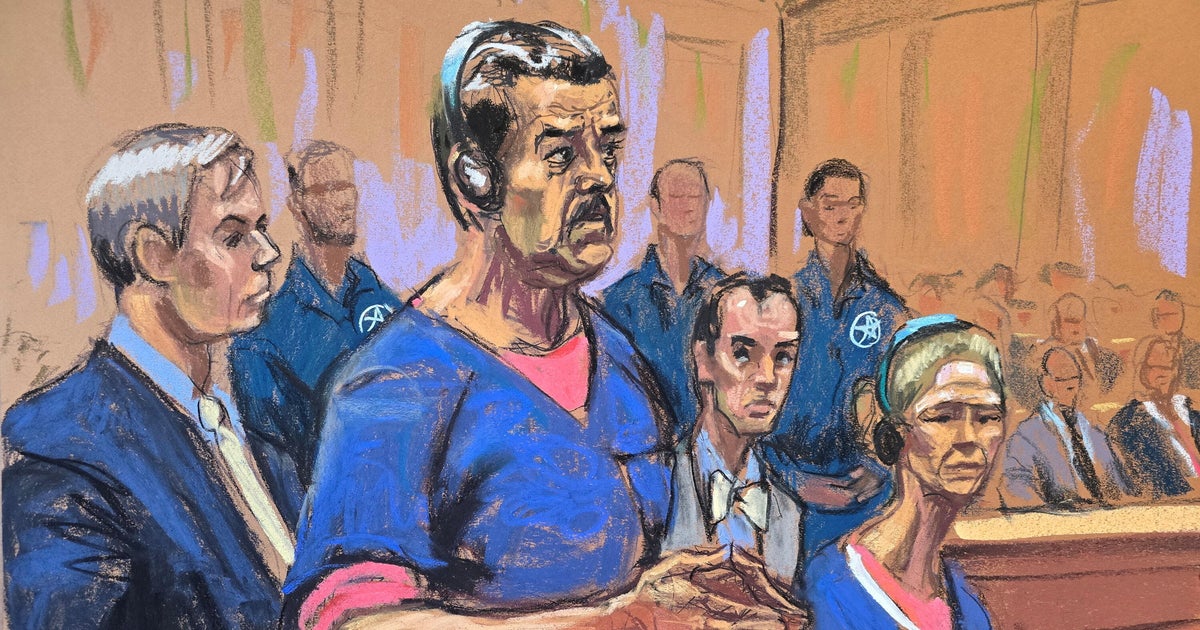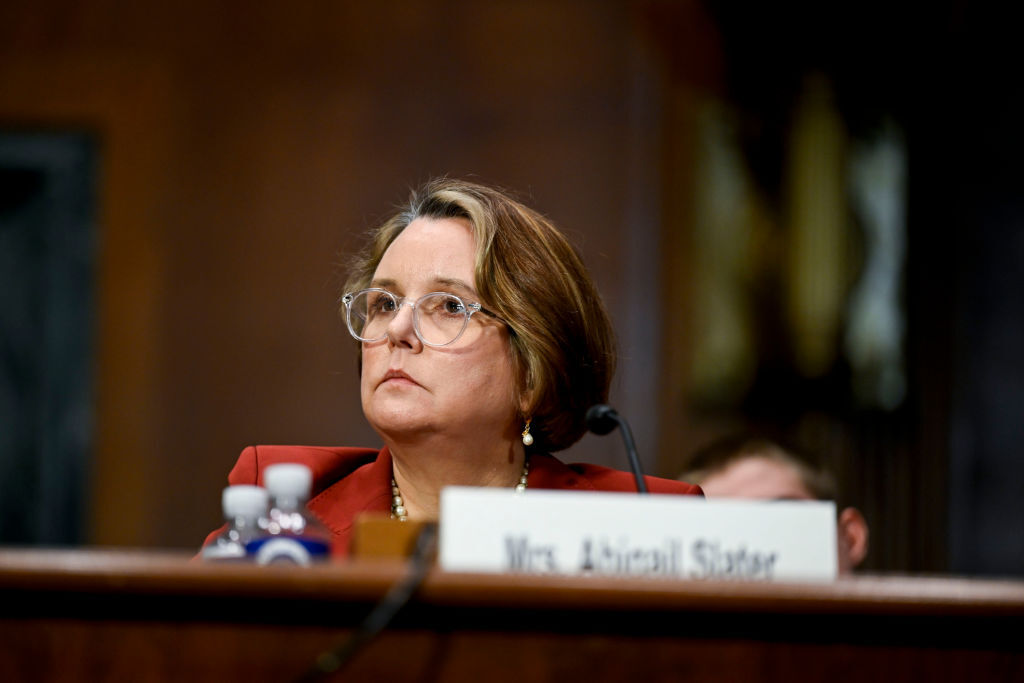Defiant Barr grilled by Senate Judiciary Committee on Mueller report
A defiant Attorney General William Barr defended the way he oversaw the release of special counsel Robert Mueller's report in a hearing before the Senate Judiciary Committee on Wednesday. His appearance followed the revelation Tuesday that Mueller had confronted Barr about his public characterization of the report.
Barr told the committee Mueller was concerned press coverage of Barr's March 24 letter to top lawmakers and the public had been "inaccurate." He conceded Mueller urged him and the Justice Department to release the executive summaries prepared by the special counsel's office. In his letter to Barr, Mueller said the Justice Department's summary of the report threatened to "undermine" public confidence in the investigation.
But Barr stressed it was up to him to determine what information to disclose and when to do so once the special counsel submitted his findings. "At that point, it was my baby," Barr told lawmakers, referring to Mueller's 448-page report.
In essence, two parallel hearings transpired. Democrats pressed Barr on the rollout of the Mueller report, as well as Mueller's letter. Republicans focused their line of questioning on the genesis of the Russia investigation, bringing up anti-Trump text messages by former FBI officials and the handling of the investigation into Hillary Clinton's email server.
A White House official told CBS News the president watched at least some of the hearing.
Here are a few things we learned from Barr's testimony:
- Barr said he was "frankly surprised" when Mueller told him he wouldn't make a determination on whether the president obstructed justice.
- The attorney general did not back down on his use of the word "spying" to assess his belief of what happened to the Trump campaign in 2016, stressing he believed the word is not "derogatory."
- Barr defended his March 24 letter determining the president had not committed obstruction of justice, saying he "felt that many of the episodes discussed in the report would not amount to obstruction as a matter of law."
- Due to the public's "agitation," Barr said he felt he needed to release a letter detailing the "bottom line" of the report.
Key moments from the hearing:
Barr won't testify before House Judiciary Committee Thursday
Barr had been invited to testify before the House Judiciary Committee on Thursday, but the DOJ informed the committee he will not attend Thursday morning, according to a committee spokeswoman.
Graham says Mueller was the "right guy" to conduct the investigation
10:08 a.m.: Graham opened the hearing with testimony praising Mueller and calling the report very "thorough."
"Mr. Mueller was the right guy to do this job," Graham said about the investigation. He then pivoted to emphasize that the report had found "no collusion" between the Trump campaign and individuals associated with the Russian government.
"The president never did anything to stop Mueller from doing his job," Graham said. However, the report said that Mr. Trump asked his White House counsel Don McGahn to fire Mueller, but McGahn did not do so.
Graham took a hard line on Russian interference in the 2016 election, saying that he would work with Democrats in an effort to strengthen American election infrastructure.
"My takeaway from this report is that we've got a lot of work to do to defend democracy from bad actors," Graham said.
He also took some time in his opening statement to question the origins of Mueller's investigation, and criticize Hillary Clinton.
Of the special counsel investigation and the Mueller report, Graham said, "For me, it is over."
Feinstein questions whether Barr was protecting the president
10:28 a.m.: California Sen. Dianne Feinstein, the top Democrat on the committee, used her opening statement to question why Barr did not release the introductions and executive summaries of the report, contrary to Mueller's wishes.
She condemned Barr's March 24 letter to Congress and the public summarizing the main points of the report, which the White House then used as a basis to publicly declare that the report found there was "no collusion," "no obstruction," and was a "total exoneration."
Unlike Graham, Feinstein emphasized the report found several ties between Trump campaign officials and individuals associated with the Russian government, and that Mr. Trump's campaign expected to benefit from Russian interference in the election, although there was no direct conspiracy. She outlined the evidence Mueller presented of instances where the president may have obstructed justice.
Barr defends obstruction of justice decision
10:30 a.m.: In his opening statement, Barr defended the decision to weigh in on whether the president obstructed justice, asserting "it would irresponsible and unfair" for him to release the report without determining whether Mr. Trump had obstructed justice.
Barr said he was "frankly surprised" when Mueller told him his investigation would not make a determination on whether the president obstructed justice in early March.
Barr told the committee he and Rosenstein "felt that many of the episodes discussed in the report would not amount to obstruction as a matter of law" but still accepted the special counsel's "legal framework" to determine their conclusion.
"We concluded that the evidence developed during the Special Counsel's investigation is not sufficient to establish that the President committed an obstruction-of-justice offense," Barr said.
Barr said that due to "agitation" by the public, he felt he needed to release a summary showing the "bottom line" of the report.
"We were not trying to summarize the 410-page report," Barr said, even though Mr. Trump himself took it as a summary which proved there was "no collusion" and "no obstruction."
Barr said Mueller told him "the press reporting had been inaccurate" based on Barr's March 24 letter, although press reports that described the letter as a summary were based on the reaction by the president.
"He argued for putting out summaries for each volume," Barr said. "He was very clear with me that he was not suggesting that we had misrepresented his report."
Barr's opening statement diverged from his prepared testimony released to the public Tuesday night in several parts.
Barr to testify on redaction process, White House input
10:45 a.m.: Barr defended the Justice Department's handling of the Mueller report, saying it made every effort to be as transparent as possible in its delivery of the report. He pointed to one analysis found just eight percent of the report had been redacted, adding, "The Deputy Attorney General and I did not overrule any of the redaction decisions, nor did we request that any additional material be redacted."
Barr also asserted that while the Justice Department allowed the White House counsel's office and the president's legal team to review the report before its release, "neither played any role in the redaction process."
Allowing the White House to review the report before its public release "was a matter of fairness," Barr said.
Barr: There was no "underlying criminality" in Trump's actions
10:55 a.m.: When asked why Barr concluded Mr. Trump did not obstruct justice, Barr said there was no "underlying criminality" in the president's actions.
Barr replied "yes" to a series of questions by Graham, asking whether Barr was also concerned about the origins of the counterintelligence investigation into Mr. Trump. He also said he "absolutely" feels good about his decision to clear Mr. Trump of obstruction of justice.
Barr also said he believed Russia and other countries would attempt to interfere in the 2020 election, and he would support an effort by Congress to harden election infrastructure.
Barr says Trump felt the probe was unfair, so he did not have a "corrupt motive" to fire Mueller
11:20 a.m.: Feinstein questioned Barr on the episode in the report which detailed the president instructing then-White House counsel Don McGahn to remove Mueller. Barr said that was not obstruction because Mr. Trump wanted to remove Mueller based on potential conflicts of interest.
He defended Mr. Trump's anger in response to press reports that said the president instructed McGahn to fire Mueller, saying Mr. Trump did not directly ask McGahn to do so. Mr. Trump asked McGahn to publicly contradict the press reports, but McGahn refused to do so, according to the special counsel's report. Barr said it was not a crime for Mr. Trump to ask McGahn to do so in order to try to prevent further negative press.
Barr said there was "no inherently malign obstruction act" by the president. He said that if Mr. Trump "felt the investigation was unfair," then "that is not a corrupt motive for replacing an independent counsel."
Barr discusses prior testimony
11:57 a.m.: Democratic Sen. Patrick Leahy questioned why Barr said in his testimony before the Senate in early April that he did not know the motives of members of Mueller's investigative team who were reportedly unhappy with Barr's March 24 letter.
Barr said he wasn't aware of those concerns reported because they were "relating to unidentified members" of the investigation, and he had spoken directly to Mueller.
"I feel your answer was purposely misleading, and I think others do too," Leahy he said in response.
Barr also insisted Mr. Trump fully cooperated with the investigation, despite asking adviser Corey Lewandowski to tell then-Attorney General Jeff Sessions to limit the scope of Mueller's probe.
"I don't see any conflict between that and fully cooperating with the investigation," Barr said.
Barr calls frustration over his 4-page summary "mind-bendingly bizarre"
12:49 p.m.: Barr repeated that Mueller indicated he was unhappy with press coverage after the release of Barr's letter. That was remedied, in Barr's mind, with the release of the redacted Mueller report.
"That's why I think this whole thing is mind-bendingly bizarre," Barr testified in response to questions from Sen. John Kennedy of Louisiana.
Barr says he told Mueller he wasn't interested in releasing Mueller's summaries, noting those summaries later needed fuller redactions.
"I thought what we should do is focus on getting the full report out as quickly as possible," Barr said.
Klobuchar says committee "must" hear from Mueller
1 p.m.: Sen. Amy Klobuchar, a 2020 Democratic presidential contender, said the committee "must" hear from Mueller directly.
But she also focused on Russian interference in the election, and asked Barr to testify on Russian interference. Klobuchar and Sen. James Lankford have introduced a bill to help secure the nation's infrastructure ahead of the 2020 election.
Klobuchar claimed the White House made calls in an attempt to put a stop to the bill last year.
Barr admits that Trump campaign was briefed on general threats
1:13 p.m.: Barr asked for time to make a brief statement to clarify prior remarks in his testimony.
Republicans have complained that the Trump campaign wasn't given a defensive briefing to alert them to Russian interference in 2016.
"I have been told during the break that a lesser kind of briefing, a security briefing that generally discusses general threats, apparently was given to the campaign in August," Barr testified.
Barr can't recall whether he discussed any ongoing Mueller cases with White House
1:48 p.m.: Barr, questioned by Democratic Sen. Richard Blumenthal of Connecticut, claimed that he couldn't "recall" if he discussed any ongoing cases stemming from Mueller's investigation with the White House.
Then he said he had no substantive discussions on such matters with the White House, but couldn't rule out whether he had engaged in less substantive conversations. But Barr very firmly said he would not recuse himself from any such investigations.
Barr said Washington has to stop using the criminal justice system as a political tool.
"I think history will judge you harshly and maybe a bit unfairly, because you seem to have been the designated fall guy for this report," Blumenthal said.
"Russia will show no hesitation," Ernst says
1:54 p.m.: Sen. Joni Ernst focused her questions around concerns about Russian interference. Russia has shown no hesitation, and it "will show no hesitation," the Iowa Republican told Barr.
Barr said he believes the intelligence community is responding to the challenge and the threat, and said Mueller told him about lessons learned about dismantling Russian threats.
Graham to Hirono: "You've slandered this man to top to bottom"
2:05 p.m.: Hawaii's Sen. Mazie Hirono, asking few questions, slammed Barr and others in the administration for their handling of the Mueller report.
"Now the American people know that you are no different from Rudy Giuliani, or Kellyanne Conway, or any of the other people who sacrificed their once-decent reputation for the grifter and liar who sits in the Oval Office," Hirono said.
But Graham wasn't having it.
"You've slandered this man to top to bottom," Graham said, adding that if Hirono wanted to ask questions she could but otherwise he would move the hearing along. Then Graham moved the hearing along, handing the next set of questions to Sen. Marsha Blackburn, a Republican.
Barr says he didn't look at the evidence underlying Mueller report
2:35 p.m.: Barr told Sen. Kamala Harris he did not analyze the evidence which formed the basis of Mueller's report on his own, but "accepted the statements in the report as a factual record." Harris questioned whether Barr would be able to determine if the president obstructed justice if he himself did not analyze the evidence.
He also said he believed ethics officials had cleared Deputy Attorney General Rod Rosenstein on whether he could make a determination on obstruction of justice while also being a witness in the investigation before Barr arrived.
Barr said it was the duty of the deputy attorney general to make charges, even if he was a witness in the investigation.
Harris later called on Barr to resign.
Cruz says Barr has experienced "the Kavanaugh treatment"
2:46 p.m.: Sen. Ted Cruz, a Republican, used his questioning time to praise Barr and condemn his Democratic counterparts on the committee. He said that Barr was experiencing "slanderous treatment -- the Kavanaugh treatment," referring to Supreme Court Justice Brett Kavanaugh, who was accused of sexual misconduct.
Kavanaugh and one of his accusers, Christine Blasey Ford, testified before the committee in September, before Kavanaugh was confirmed. Many Republicans believe the allegations against Kavanaugh were a smear against him to tank his nomination.
Barr says he doesn't think Mueller kicked issue of obstruction to Congress
2:56 p.m.: Barr said he did not believe Mueller had punted the issue of whether Mr. Trump committed obstruction of justice, as many Democrats do.
"That's not why we conduct grand jury investigations," Barr said, suggesting the investigation was carried out in a way which did not encourage congressional input.
Barr reiterated Mr. Trump did not act with "corrupt motives," a requirement for deciding of obstruction of justice, because Mr. Trump believed he was falsely accused.
Barr says he determined Trump didn't obstruct justice the same day he sent the letter
3:05 p.m.: Barr said he determined Mr. Trump had not obstructed justice March 24 -- the day he sent his letter declaring his determination -- and that he had received the report March 22. Mueller had told him the special counsel's investigation would not make a determination March 5.
Barr details phone call with Mueller
3:09 p.m.: Barr said he was the one to call Mueller after the special counsel sent the letter on March 27 expressing his dissatisfaction with Barr's March 24 four-page letter summarizing the main points of the report. Barr said there were "multiple witnesses in the room," including the deputy attorney general, and the call was "on speakerphone."
"I said, 'Bob, what's with the letter? Why don't you just pick up the phone and call me if there's an issue?'" Barr testified. He added Mueller told him he was concerned with representations of the March 24 letter in the press. However, Sen. Richard Blumenthal noted Mueller did not mention the media in his March 27 letter.
"The letter's a bit snitty and I think it was probably written by one of his staff members," Barr said.




